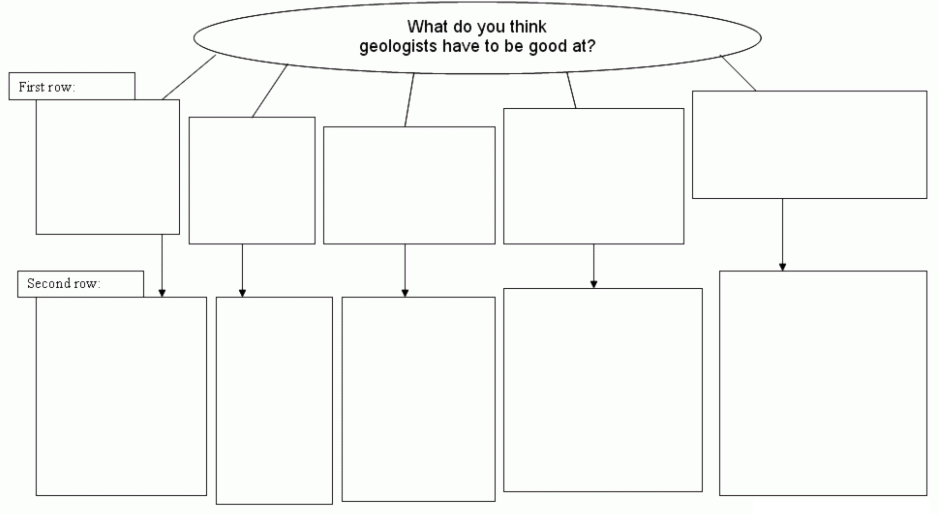Rock Doc
Read the article 'Rock Doc' by K. E Anderson, Junior Journal 21, pages 8-13. Remember to look at the pictures too.

b) In the first row of boxes, suggest possible answers to the question, "What do you think geologists have to be good at?".
In the second row, explain where you got the answers from.

- This resource could be part of a social studies or science study. Click on the "Further resources" tab for further information.
- It could be used in conjunction with the writing of explanations (see https://arbs.nzcer.org.nz/writing-explanation-learning-intention-guide).
- The student sheets could be enlarged for a co-operative brainstorming session following a guided or shared reading of the article. For the second question especially, teachers may need to model the reading strategy of making inferences. Click on the "Working with students" tab for further information.
- use comprehension strategies
- infer ideas and information that are not directly stated in the text
| Y5 (05/2005) | ||
| a) |
What do geologists do?
Any 10 of:
|
Number of different pieces of information:
7-10, very difficult 5-6, moderate 3-4, easy |
| b) i) |
What do you think geologists have to be good at?
Any 5 of:
|
Number of different suggestions:
4-5, very difficult 3, moderate 2, easy |
| b) ii) |
Student explains that their inferences above came from either: this text, e.g.,
and/or their own knowledge/experience, e.g.,
and/or another text, e.g.,
|
difficult |
An example from the trial of a student’s mind map for the second question is given below. It could be used to give students starter ideas and/or for teachers and students to discuss. Ideally, for a group modelling session, it would be enlarged.

Inferring means using content in a text, together with existing knowledge, to come to a personal conclusion about something that is not stated explicitly in the text. When the author provides clues but not all the information we read "between the lines"…Effective Literacy Practice in Years 1 to 4, pg 132, Ministry of Education, 2003
Questions that could help students to make inferences are:
- Are there any clues in the words and pictures?
- What would you have to be good at to do the work that Roc Doc does?
Refer to information gathered for a).

